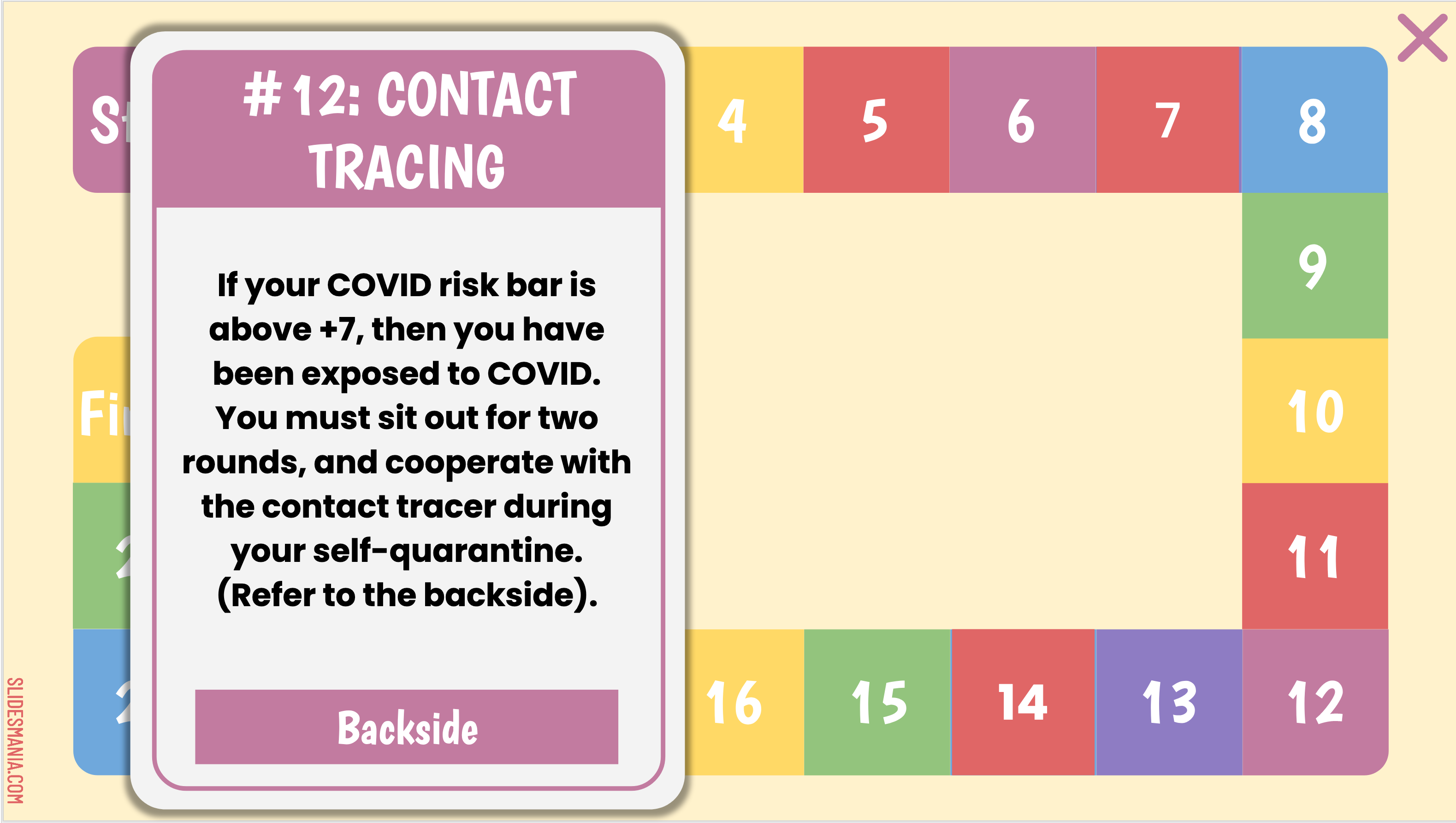Lights, Camera, Hygiene Theater!

By: Judy Chon, Ashley Hong, Josh Moy, Tyler Vu, Ruizhi Wang
You might not be as safe as you think: Why excessive cleaning measures may lead to a false sense of security.
Download the Instructions here
Click here to begin our game, XpOSURE.
Through XpOSURE, the game board creators wish to relay the message: Stop the “Show and Tell.”
Amid the COVID-19 response, there is a concern about how governments and institutions create knowledge and relay information to the public, and how this information manifests in actions taken by the public players. To mitigate fears of COVID-19, there have been “show and tell” acts, such as hygiene theater or even, at times, contact tracing that “lure” – rather than “protect” – citizens into the outside society from their homes.

While increasing research and updated CDC guidelines suggest that surface transmission of COVID-19 is not how the virus primarily spends, deep cleaning in schools or restaurants and businesses has the public feeling safe – a “show and tell” – when the risk of transmission persists. Relaying a sense of false security, the “hygiene theater” thrives.
So how does COVID-19 spread? The air. There’s still much to research and uncover with regards to airborne transmission, as we contrast, for instance, person-to-person transmission from lingering aerosols in the room. And, hand-washing, avoiding face-touching, social distancing or deep cleaning in hospitals are all still important practices to combat the spread of COVID-19. But, when deciding where to put often limited resources and funding in societal efforts to protect community spread, the hygiene theater must not be allowed to propagate.
By exploring the idea of the “hygiene theater” and contact tracing, there are questions in biology and society raised, as an accurate awareness of how the virus acts and spreads has direct implications on the guidelines, as well as interventions and technologies put in place for the safety of the general public. In times of misinformation and uncertainty, the individual is only as powerful as the community that surrounds oneself. In the critical and sensitive interaction between public health and individual health, COVID-19 calls on federal, state, and local officials to uphold policies that will promise real safety – not a feeling of safety – of individuals and their communities.
Paradoxically, while the hygiene theater may have developed amid public health prevention efforts around COVID-19 contingent on bureaucratized actors, hygiene theaters are engaged by individualized actors, raising an important mission of our game to not blame the individual, but empower with knowledge and action.
By engaging in our interactive game board with fellow team members, the game board creators wish to relay key information that pertains to COVID risk, economy, mental health, hygiene, and knowledge in an effort to empower players as both citizens of City X in the game, and citizens of their local environment in the real world.
Now, back to our invite. Can your team reopen City X?
comments powered by Disqus